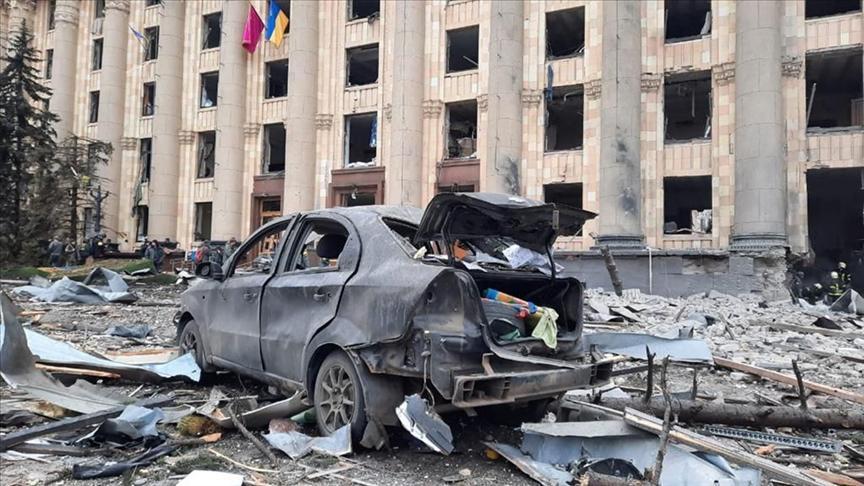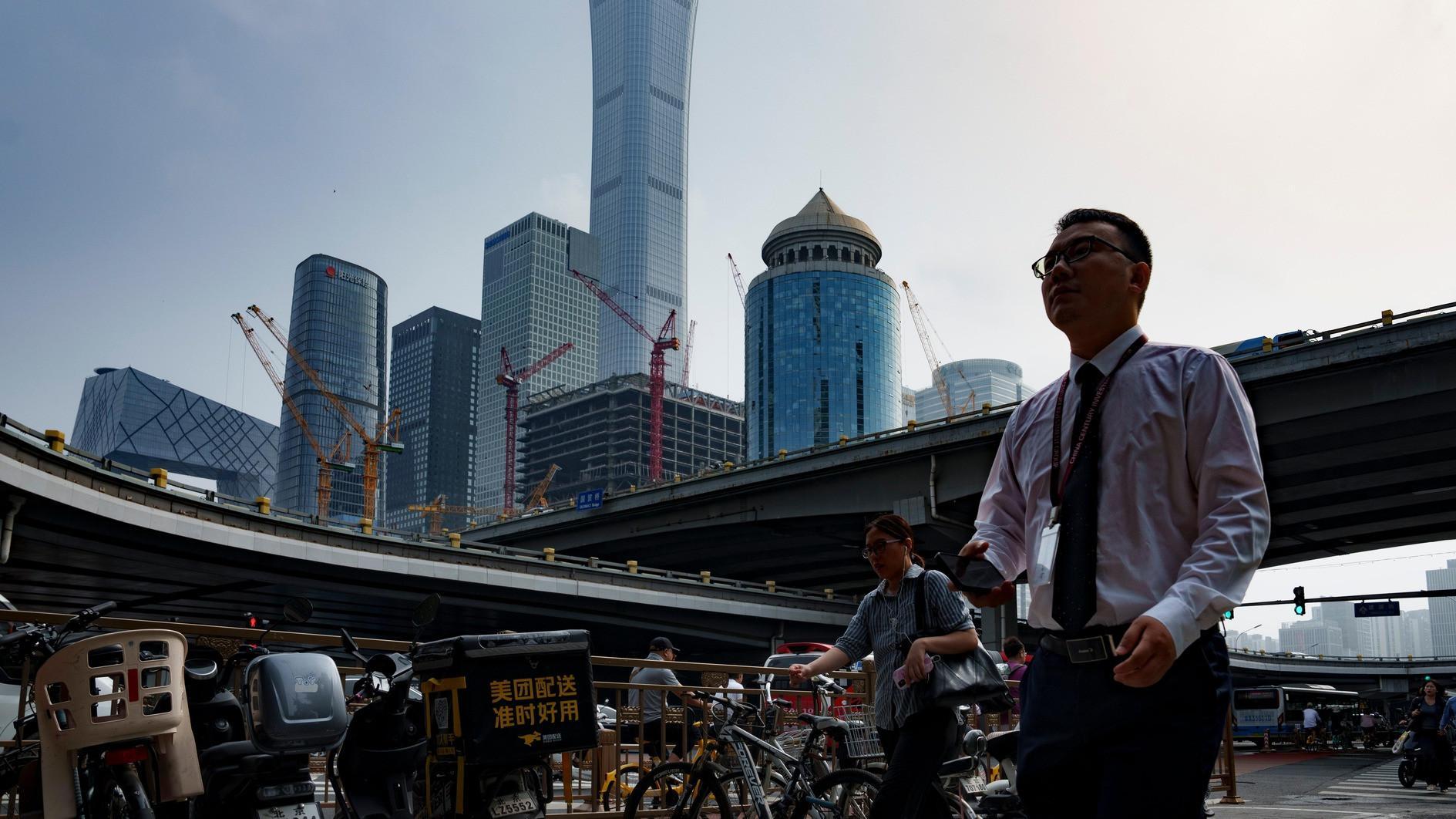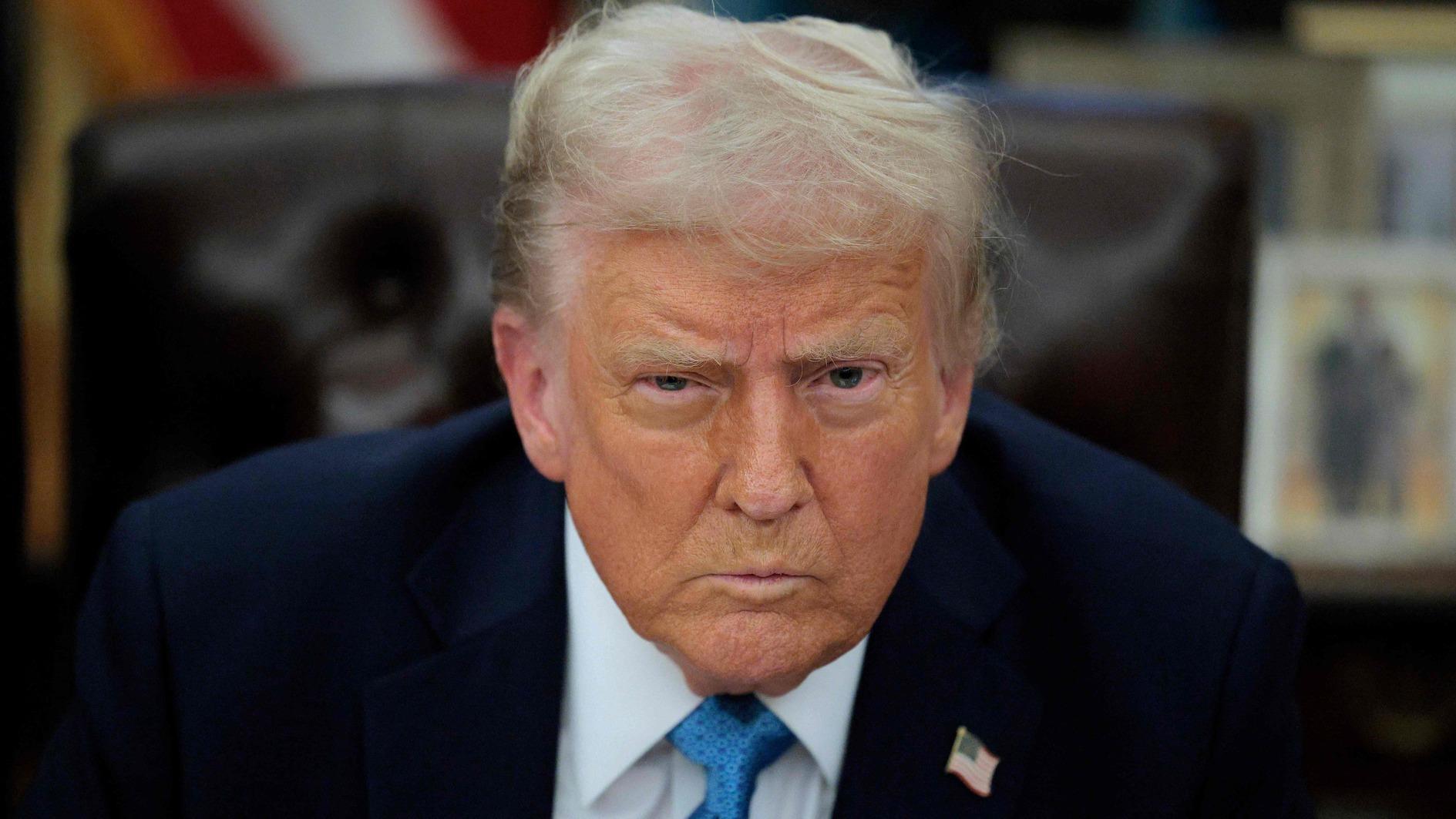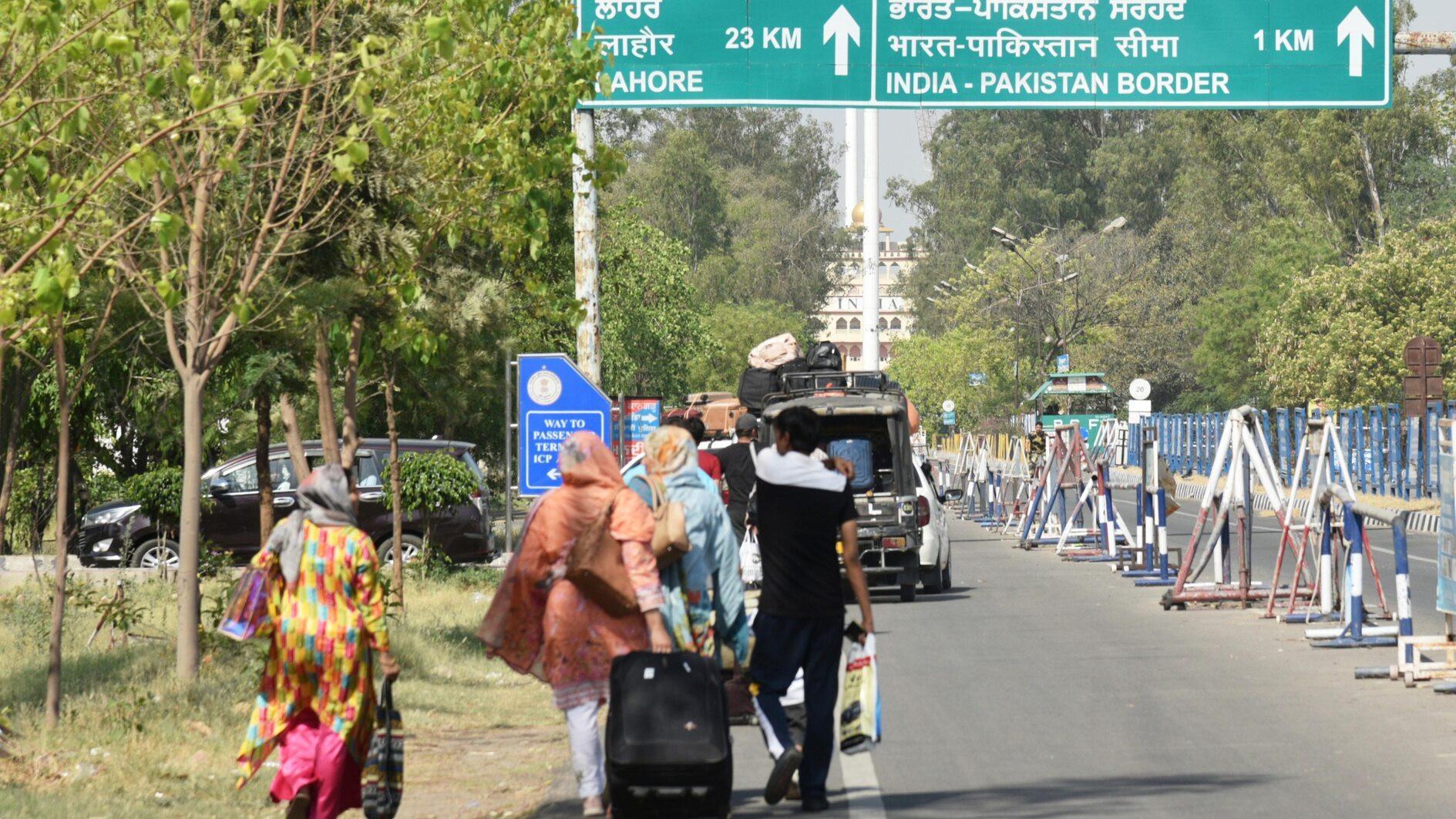Donald Trump’s travel ban gets global backlash
BERLIN/BAGHDAD
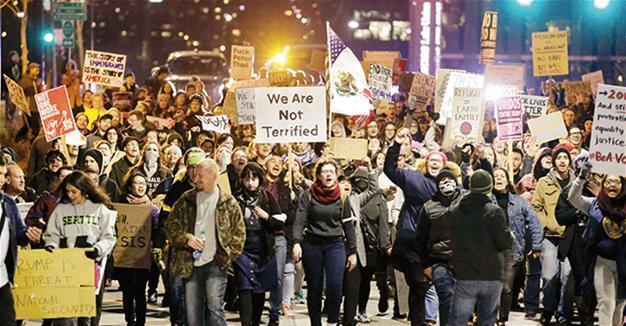
AFP photo
U.S. President Donald Trump’s executive order to ban people from seven Muslim-majority countries to enter the country and a temporary decision to halt refugee admission has caused a global backlash varying from Iraq to the United Nations.But Trump denied his order was to blame for the chaos at airports, instead pointing to computer glitches, protesters and even the “tears” of a senator.”
“There is nothing nice about searching for terrorists before they can enter the country,” Trump wrote in a series of early-morning tweets. “This was a big part of my campaign. Study the world!”
By executive order on Jan. 27, Trump decided to suspend the arrival of all refugees for at least 120 days – and Syrian refugees indefinitely – and bar citizens from Iran, Iraq, Libya, Somalia, Sudan, Syria and Yemen from arriving for 90 days.
Trump released a statement asserting, “To be clear, this is not a Muslim ban, as the media is falsely reporting.”
European Union officials denounced U.S. policy as a dangerous embrace of isolationism and inequality, while the international aid group Doctors Without Borders (MSF) accused Trump of keeping people “trapped in war zones, directly endangering their lives.”
The EU Parliament’s chief Brexit negotiator, Guy Verhofstadt, said Jan. 30 that Trump was a threat to the EU.
German Chancellor Angela Merkel renewed her criticism of Trump’s order, saying, “The necessary and determined fight against terrorism in no way justifies a general suspicion against people of a certain faith – in this case against people of Muslim faith – or people with a certain origin.”
The Organization of Islamic Cooperation (OIC) warned on Jan. 30 that the travel ban imposed by Trump would strengthen the position of extremists worldwide.
“Such selective and discriminatory acts will only serve to embolden the radical narratives of extremists and will provide further fuel to the advocates of violence and terrorism,” said the OIC in a statement.
The 56-member organization urged the U.S. to reconsider its “blanket decision” and to “maintain its moral obligation to provide leadership and hope at a time of great uncertainty and unrest in the world.”
Iraq has asked the United States to reconsider the travel ban on its citizens, the Foreign Ministry said on Jan. 30, taking a more diplomatic line than the Iraqi parliament which had demanded the government “retaliate.”
“It is necessary that the new American administration reconsider this wrong decision,” the Foreign Ministry said in a statement.
Noting their cooperation in fighting the Islamic State of Iraq and the Levant (ISIL), the statement added:
“We affirm Iraq’s desire to strengthen the strategic partnership between the two countries.”
Earlier in the day, Iraqi lawmakers voted to call on the government to enact a reciprocal travel ban on Americans if Washington does not withdraw its decision to bar the entry of Iraqis.
Meanwhile, attorneys general from 16 U.S. states, including California, New York and Pennsylvania, issued a joint statement on Jan. 29 condemning Trump’s executive order.
“We are committed to working to ensure that as few people as possible suffer from the chaotic situation that it has created,” the statement said.
Trump’s travel ban is illegal and “mean-spirited,” the United Nations human rights chief Zeid bin Ra’ad Zeid al-Hussein said on Jan. 30.
Zeid, who rarely communicates on Twitter, said in a tweet that “discrimination on nationality alone is forbidden under human rights law,” adding that “the U.S. ban is also mean-spirited and wastes resources needed for proper counter-terrorism.”
The U.N. bodies most directly engaged with migration, the U.N. refugee agency and the International Organization for Migration (IOM), issued a statement on Jan. 28 which made no mention of the executive order and stopped far short of condemning it.
Instead, the agencies urged the U.S. to “continue its strong leadership role and long tradition of protecting those who are fleeing conflict and persecution.”
They also vowed “to engage actively and constructively with the U.S. Government... to protect those who need it most.”
Trump tweeted early on Jan. 30 that only 109 out of 325,000 people “were detained and held for questioning” following his executive order to bar individuals from the seven Muslim-majority countries.
Trump referred to a Delta systems outage on the night of Jan. 29 that led to departure delays and cancellations of at least 150 Delta flights. However, the chaos started on Jan. 28 as protesters packed some of the country’s major airports to demonstrate against the executive order.
Democratic Sen. Chuck Schumer tweeted Jan. 27 that “Tears are running down the cheeks of the Statue of Liberty” over the ban, prompting Trump to retort that some of the problems in the wake of the ban were the result of the representative’s tears.


